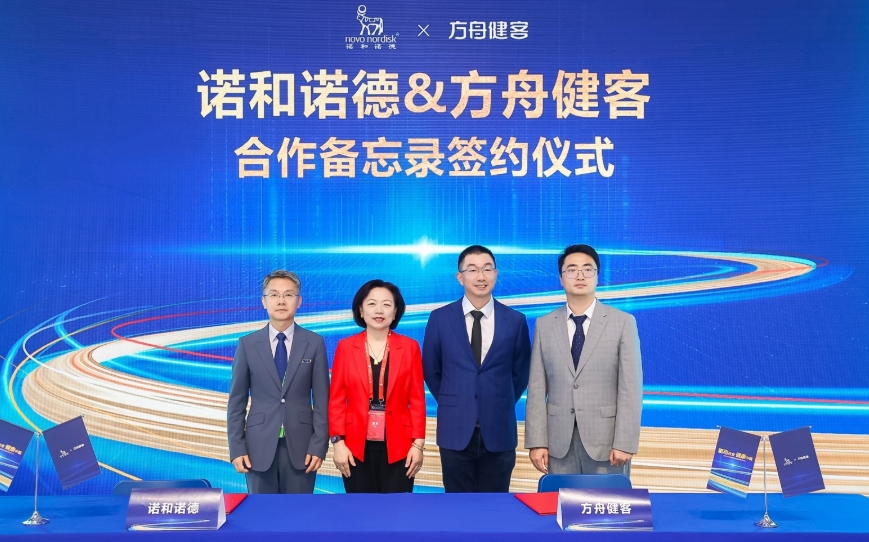Tell us about Noxopharm and its portfolio of innovative treatments.
We are an Australian biotech with two highly innovative and proprietary technology platforms – Sofra for inflammation, autoimmunity, and mRNA vaccine enhancement, plus Chroma for oncology. We have a strong team of experienced leaders with over 100 years of combined pharma experience, as well as very talented scientists who are progressing our research on both fronts. We also work closely with research institutions and academia and take a very collaborative approach to our business.
How have the Chroma and Sofra platforms shaped the company’s approach to cancer and inflammation therapies?
Our Sofra platform has been developed from our close relationship with the Hudson Institute of Medical Research, based on over 20 years of research there into inflammation and related diseases. We are now seeing some very promising assets emerge from the platform, which is based on short nucleic acid sequences known as oligonucleotides. These provide a novel treatment approach, acting on specific cells to modulate inflammation at its source, and can therefore be applied in many different areas such as vaccines and autoimmune diseases where inflammation plays a central role.
In addition, our Chroma platform is based on a scaffold structure known as functionalised benzopyrans, and through it, we are generating a library of unique drug candidates that share novel bioactive properties to enhance anti-cancer activity in areas such as pancreatic cancer and glioblastoma.
What are the most promising drug candidates in your pipeline based on the Chroma and Sofra platforms, and what therapeutic areas do you see offering the most immediate potential?
Along with SOF-VAC, from the same Sofra platform, we are also developing SOF-SKN, a topical treatment for autoimmune diseases, specifically skin diseases that are caused by cutaneous lupus erythematosus (CLE). It is based on a proprietary oligonucleotide with the specific ability to block TLR7/8 inflammatory sensors, which are overactivated in numerous autoimmune diseases. We see CLE as a proof of concept for numerous other autoimmune diseases like rheumatoid arthritis and even diabetes.
Currently, there is no cure for CLE and treatment of symptoms is usually required on an ongoing basis, often for life, representing a significant commercial opportunity for any effective medication.
We are taking SOF-SKN to a clinical trial next year that will be known as HERACLES, for ‘Harnessing Endogenous Regulators Against CLE Study’. It will be the first-in-human trial from our Sofra platform and we are currently very active with all the preparations. For example, we have just completed our formulation, which enables an even release and delivery of the active drug ingredient into the skin in a consistent manner.
Turning to the Chroma platform, our lead candidate is CR0-67, which has demonstrated a unique dual-cell activity against pancreatic cancer and the surrounding barrier cells in preclinical studies using cells from patient tumours. Our most recent study results showed a significant decrease in tumour volume growth rate, a significant decrease in barrier cells, and a significant reduction in cancer spread. As your readers will surely know, pancreatic cancer is highly aggressive with very low survival rates, so there is an unmet need in this area.
mRNA vaccines are a significant area of interest globally. How does your technology aim to enhance mRNA vaccines?
We have developed a novel mRNA vaccine enhancer from our Sofra platform. Known as SOF-VAC, it is designed to minimise inflammatory side effects from these vaccines. When an mRNA vaccine is given, the mRNA triggers an immune response to the target virus, like COVID-19 for example. However, the body breaks mRNA down into fragments which then bind to inflammation sensors like Toll-like receptor 7 (TLR7), switching on an inflammatory response that can result in undesirable side effects.
SOF-VAC is built around a proprietary oligonucleotide that is designed to block TLR7 receptors and reduce vaccine-related inflammation at its source. It therefore gives the mRNA vaccine industry the opportunity to enhance existing vaccines. SOF-VAC could also support an increasingly broad range of mRNA technologies – not just vaccines but also mRNA therapeutics and, in fact, other RNA-based therapeutics now being developed for new treatments.
As such, we think there is real potential for our technology to help reduce inflammation, especially as it works in a very different and more efficient way than today’s most well-known approach using pseudouridine, which won the Nobel Prize last year but is not easily available to industry participants looking to solve the inflammation challenge.
As an Australian biotech, how does Noxopharm plan to expand its global reach, particularly in major markets like the US and Europe?
Australia is a great place to do business as we have a superb research community, great partners and very experienced clinical trial units. However, it is also a long way from other centres of excellence and that represents a challenge for many Australian biotechs. We take a strategic approach to expanding our reach, with our primary method being to attend carefully selected events throughout the year. Going to the right conferences, for example, enables us to present to influential audiences and meet with other companies who might be interested in our technologies in one-on-one scenarios.
This has paid off as we have recently signed Material Transfer Agreements with several companies from around the world who want to evaluate the potential of various assets from our Sofra platform.
We are also building awareness in other areas, such as joining the Alliance for mRNA Medicines earlier this year. The Alliance is rapidly becoming the key international group and unified voice for the global mRNA industry, and its members are leading companies in the field to whom we now have greater exposure.
What emerging trends in cancer and inflammation treatments do you see shaping the industry, and how is Noxopharm positioning itself to stay at the forefront of these innovations?
Right now we are most encouraged by the rapid development of the wider RNA field – from small biotechs developing promising technologies to huge partnerships between governments and global companies. The number of different RNA approaches appears to be growing exponentially, and we are confident this will ultimately result in positive public health outcomes. In addition, our collective understanding of cancer and the development of tailored therapies is very interesting indeed.
We will continue to develop our two platforms as rapidly as possible, especially as they represent new and different approaches in both fields that put us at the forefront of innovation. We will also build on the great exposure we have gained as more companies become aware of our technologies. It’s certainly an exciting time for us, and we’re eagerly looking ahead to 2025 and beyond.
Ayesha Siddiqui




